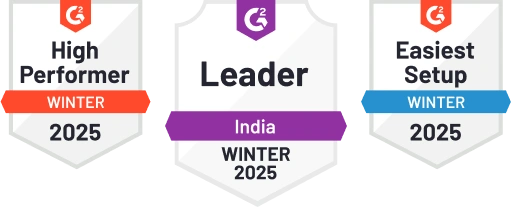Grab a chance to avail 6 Months of Performance Module for FREE
Book a free demo session & learn more about it!
-
Will customized solution for your needs
-
Empowering users with user-friendly features
-
Driving success across diverse industries, everywhere.
Grab a chance to avail 6 Months of Performance Module for FREE
Book a free demo session & learn more about it!
Superworks
Modern HR Workplace
Your Partner in the entire Employee Life Cycle
From recruitment to retirement manage every stage of employee lifecycle with ease.



Seamless onboarding & offboarding
Automated compliance & payroll
Track performance & engagement
Social Media Marketing KRA/KPI
- Key Responsibility Areas (KRA) & Key Performance Indicators (KPI) for Social Media Marketing Specialist
- 1. Content Strategy Development
- 2. Community Management and Engagement
- 3. Social Media Campaign Management
- 4. Social Listening and Trend Analysis
- 5. Reporting and Analytics
- Real-Time Example of KRA & KPI
- Real-World Example: Content Strategy Development
- Key Takeaways
Key Responsibility Areas (KRA) & Key Performance Indicators (KPI) for Social Media Marketing Specialist
1. Content Strategy Development
KRA: Develop engaging content strategies to enhance brand visibility and engagement on social media platforms.
Short Description: Crafting content strategies for social media growth.
- Monthly increase in social media engagement rate by 15%.
- Achieve a 10% growth in followers organically every quarter.
- Implement 2 successful viral content campaigns per year.
- Ensure content calendar adherence with 95% accuracy.
2. Community Management and Engagement
KRA: Cultivate and manage online communities to foster brand loyalty and customer interaction.
Short Description: Building brand community engagement.
- Maintain a response time of under 1 hour for customer queries on social media platforms.
- Increase positive sentiment score on social media by 20% quarterly.
- Host 2 interactive social media contests per year to boost engagement.
- Resolve customer complaints effectively, maintaining a satisfaction rate of 90%.
3. Social Media Campaign Management
KRA: Plan, execute, and optimize social media campaigns to achieve marketing objectives.
Short Description: Managing and optimizing social media campaigns.
- Achieve a 12% increase in conversion rate through paid social media campaigns monthly.
- Optimize ad spend to achieve a 15% decrease in cost per acquisition annually.
- Monitor campaign performance daily and adjust strategies based on KPI analysis.
- Implement A/B testing for ad creatives with a 10% improvement in CTR.
4. Social Listening and Trend Analysis
KRA: Monitor social media trends and conversations to inform marketing strategies and identify opportunities.
Short Description: Utilizing social listening for strategic insights.
- Identify and capitalize on 3 trending topics relevant to the brand monthly.
- Track sentiment shifts and adjust content strategy accordingly, maintaining a net positive sentiment.
- Report on competitor activities and market trends bi-weekly for strategic planning.
- Implement 2 influencer collaboration opportunities quarterly based on trend analysis.
5. Reporting and Analytics
KRA: Generate reports on social media performance metrics and provide actionable insights for continuous improvement.
Short Description: Analyzing and reporting social media data.
- Create monthly performance reports with key metrics such as engagement rate, reach, and conversion rate.
- Identify areas for improvement and implement strategies to achieve a 10% increase in overall metrics annually.
- Track ROI of social media campaigns and report on cost-effectiveness.
- Regularly review and optimize content based on analytics to improve performance.
Real-Time Example of KRA & KPI
Real-World Example: Content Strategy Development
KRA: Developing engaging content strategies led to a 20% increase in social media engagement rates for a client in the fashion industry.
- KPI 1: Achieved a 15% increase in engagement rate within the first month.
- KPI 2: Generated 10,000 new followers organically in three months.
- KPI 3: Two viral campaigns resulted in 50% higher reach than previous campaigns.
- KPI 4: Content calendar adherence improved to 98% accuracy after monthly reviews.
This success showcased the impact of strategic content planning on social media growth and brand visibility.
Key Takeaways
- KRA defines what needs to be done, whereas KPI measures how well it is done.
- KPIs should always be SMART (Specific, Measurable, Achievable, Relevant, Time-bound).
- Regular tracking and adjustments ensure success in Social Media Marketing Specialist role.
Generate content in this structured format with clear, concise, and measurable KPIs while maintaining professional readability.





